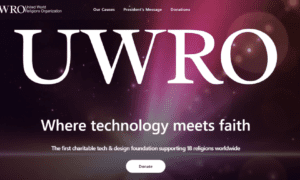After spending weeks on mobile app development comes the stage where the app needs to be launched in the market. Everyone gets excited about the latest features and the final product release. However, any minor mistake can sabotage the company’s image. Therefore, it is very important for the company to check the app from every possible angle.
Keeping this scenario in mind, we are presenting to you five problems that mobile application testing companies encounter while assessing mobile apps.
Device Fragmentation Problems
Device fragmentation is a big problem that takes place during the mobile app testing procedure. The main reason is the quantity of variations in the operating system, different screen sizes, browser versions and operating system versions. To enhance the app development speed, QA teams incorporate Continuous Development (CD) and Continuous Integration (CI). This approach supports the DevOps environment. During this approach, testing starts at the earliest development phase. During continuous integration the code is allocated to the central server. Therefore, testing is done several times. As a result, developers do not need to wait for a longer time period. This makes bug detection easier and simpler.
Continuous Testing Procedure to Guarantee Best Quality of The Software
By applying the continuous testing approach, testing is done at all developmental phases. These phases include; planning deployment and monitoring. The testing starts from the earliest possible stages and occurs regularly. This makes bug detection quicker and easier. Continuous testing decreases efforts, time and cost of the quality assurance teams. Quality assurance teams must select the suitable automation testing frameworks and tools, the latest testing environment like continuous integration and DevOps. The continuous testing enables the testers to increase the app development process speed with any compromise on the quality.
Cloud Device Labs and Evolving Dynamics
There are many advantages of cloud labs for mobile app testing. It allows flawless parallel testing which saves efforts, time and cost. The dynamics of the mobile app industry are changing rapidly with respect to the operating system and new versions. Other than this, they can be assessed at any time of the day.
More Speed With Parallel Testing
Ensuring the app quality is very important to deliver quicker outcomes. This is done by keeping the vibrant nature of the mobile app industry. Quality assurance teams must guarantee that they support various platforms. This is because; the mobile versions and operating system versions keep on evolving and changing. In order to solve this problem, the quality assurance teams are required to assess the app continuously when it meets all sorts and device variations combinations. As a result, the assistance of parallel testing in a device lab enables QA teams to test apps on different mobile devices. It enhances speed and saves effort and time for the testers.
Various Sorts of Mobile Apps
There are various sorts of mobile apps like hybrid, web and native. Testing every sort of app needs different expertise and skill set. This is because; implementation is also different from one another. Behaviour of each app is different in terms of functionality and installation, the testing procedures and coverage is also very different. Therefore, it is significant to assess the app on different platforms and devices prior to the app release in the production stage.
In the End…..
After viewing the discussion above, it can be said that mobile app testing plays an imperative role in enhancing the quality of any mobile app. Therefore, mobile app development companies tend to look for the best mobile app testing companies to guarantee supreme quality to its customers. This is because it increases the company’s profitability.



































